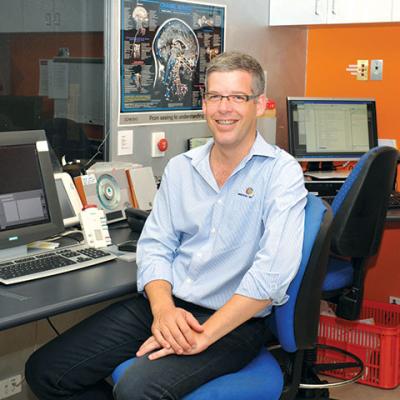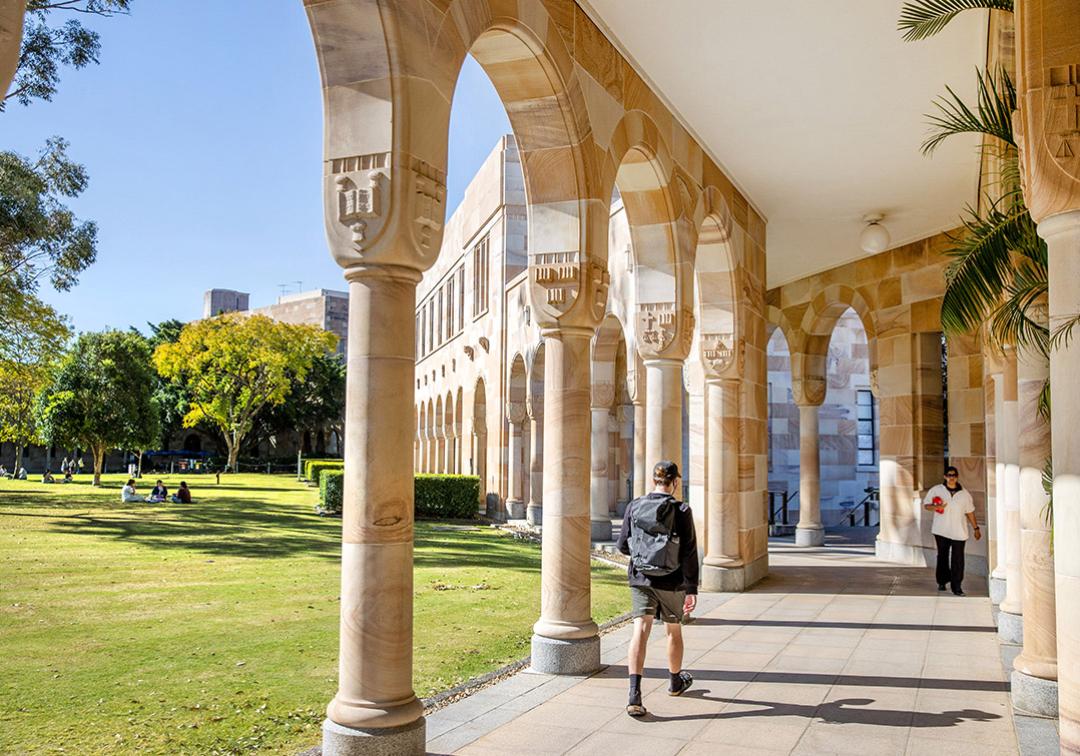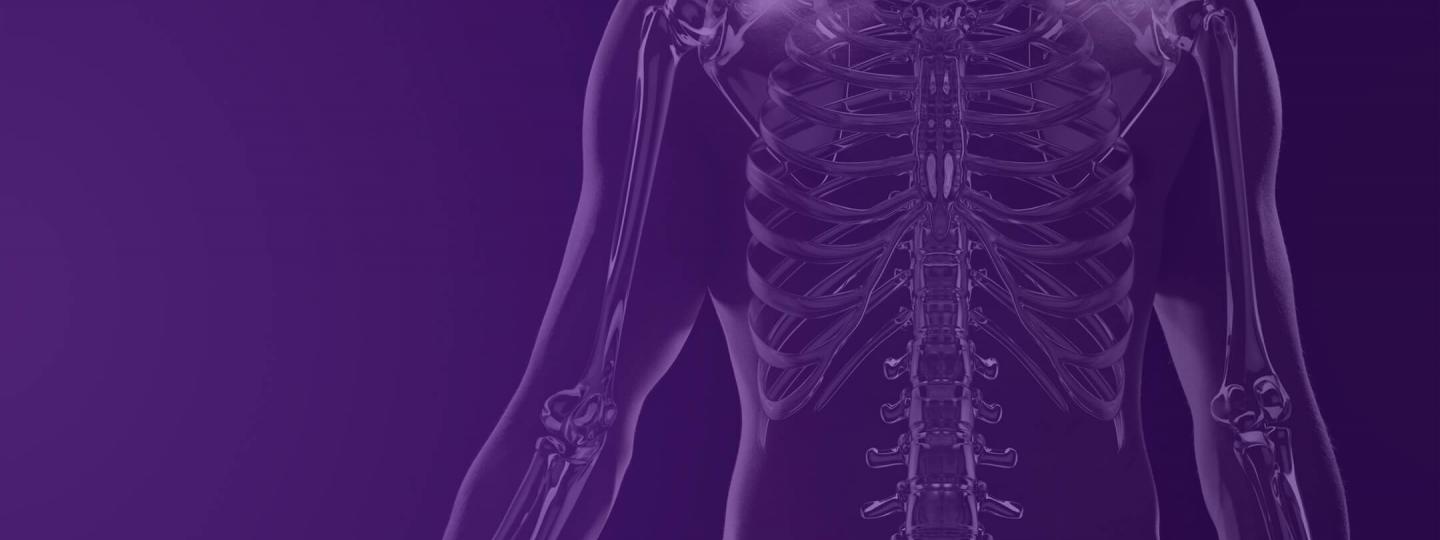
Graduate Diploma in Magnetic Resonance Technology
Overview
Gain an advanced understanding of the physics and technology surrounding magnetic resonance, and be in demand here and overseas.
This program is designed for health professionals working with magnetic resonance imaging (MRI) equipment who are seeking formal qualifications in this rapidly expanding field.
In a multidisciplinary environment, you'll learn from experienced radiographers, medical practitioners, medical physicists, chemists and engineers about the physics of magnetic resonance and image formation, the components of modern MRI scanners and essential specialist practical skills.
Access the most comprehensive and advanced range of magnetic resonance instrumentation in the Southern Hemisphere, including:
- whole-body scanners
- high resolution nuclear magnetic resonance (NMR) spectrometers
- solid state and electron paramagnetic resonance (EPR) instruments
- micro-imaging and animal imaging systems.
You'll apply your knowledge to projects that make innovative use of magnetic resonance, and be exposed to new techniques that are not yet part of standard clinical practice. You'll also gain the skills to assess the needs of a radiography practice and the capability to meet these needs with equipment from various manufacturers.
Program highlights
- Access the most advanced range of magnetic resonance instrumentation in the Southern Hemisphere.
- Learn the latest techniques from leading experts in the field.
- Be eligible for Australian Society of Medical Imaging and Radiation Therapy continuing professional development (CPD) points accrual.
- Organise your study around professional and personal commitments, with all courses in this program able to be completed online.
How you'll learn
Your learning experiences are designed to best suit the learning outcomes of the courses you choose.
- Lectures
- Tutorials
- Online study
What you'll study
At UQ, degrees are called 'programs' and subjects are called 'courses'. Here's a sample of the courses you could study in this program:
- MR Safety and Monitoring
- Magnetic Resonance Imaging: Fundamentals
- Magnetic Resonance Instrumentation
- MRI Pulse Sequence Construction and Image Contrast
Career possibilities
Postgraduate study can take you anywhere. Here are some of the careers you could be on your way to:
- Magnetic resonance technologist
- Magnetic resonance imaging physicist
- Image processor
- Biomedical researcher
- Senior radiographer
Average annual salary range
Radiographer
seek.com.au
Average annual salary range
Medical Imaging Technologist
seek.com.au
Next steps after graduation
MRI physicists, MR technologists, image processors, engineers and biomedical engineers are in strong demand within Australia and internationally. UQ graduates have found employment in leadership positions in hospitals, private practice and research facilities.
Events
See all events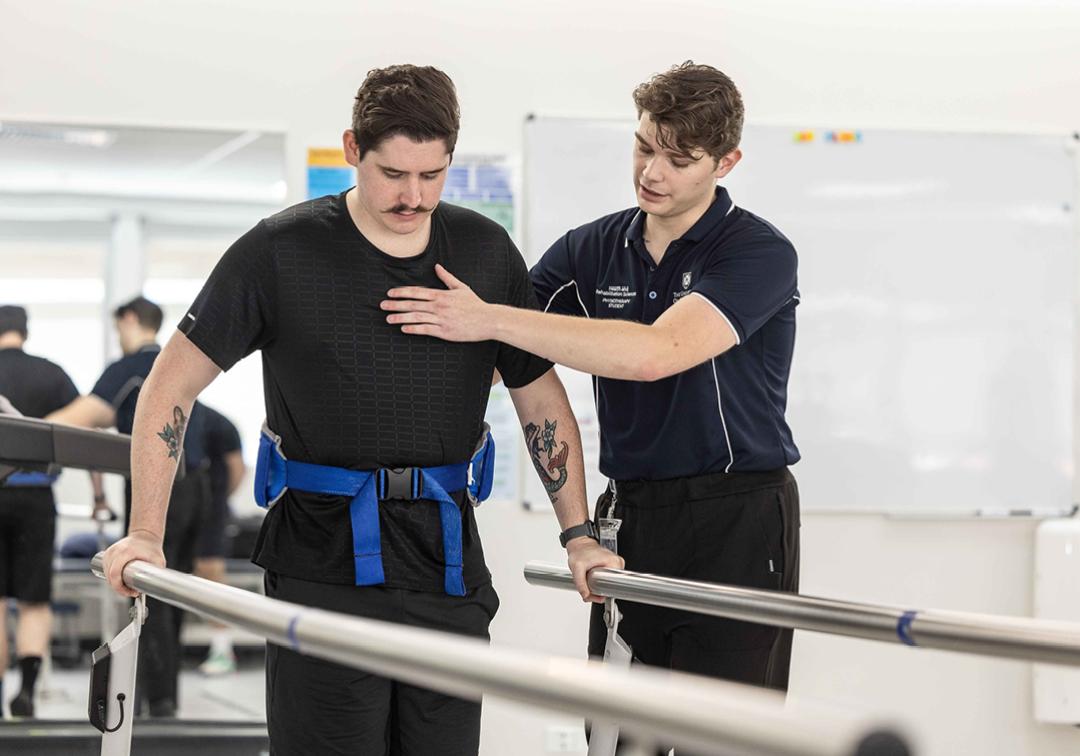
9 June
Master of Physiotherapy information webinar
Stories
See all stories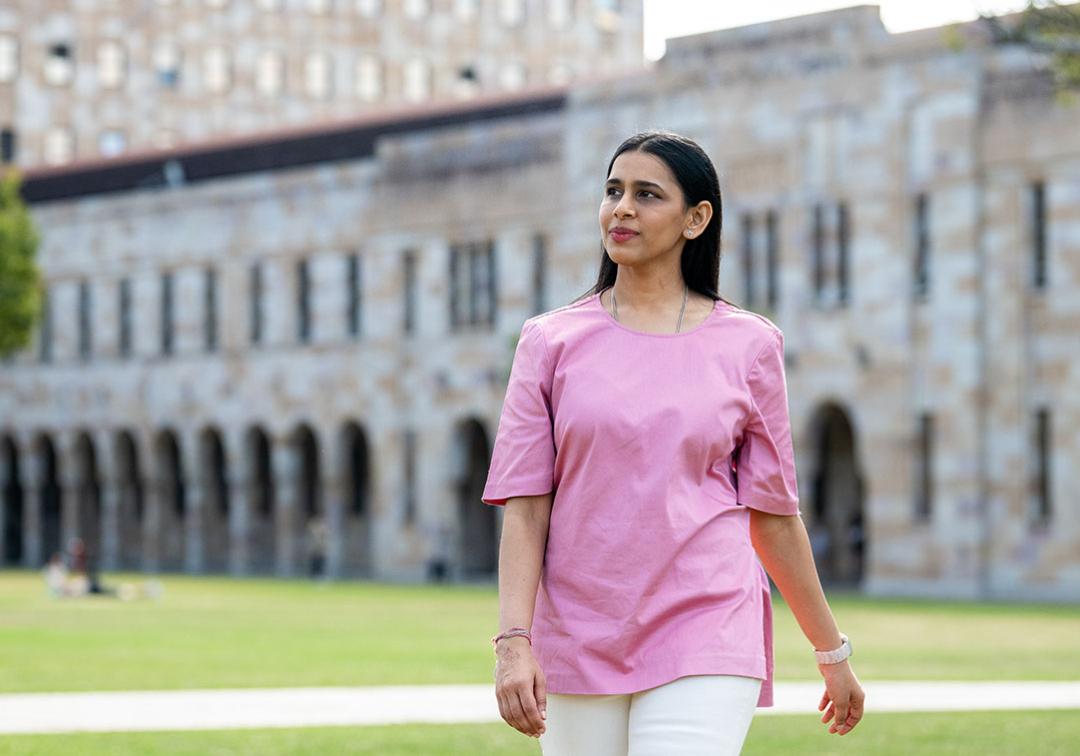
Careers
Top 5 reasons to choose UQ for postgraduate study
3-minute read
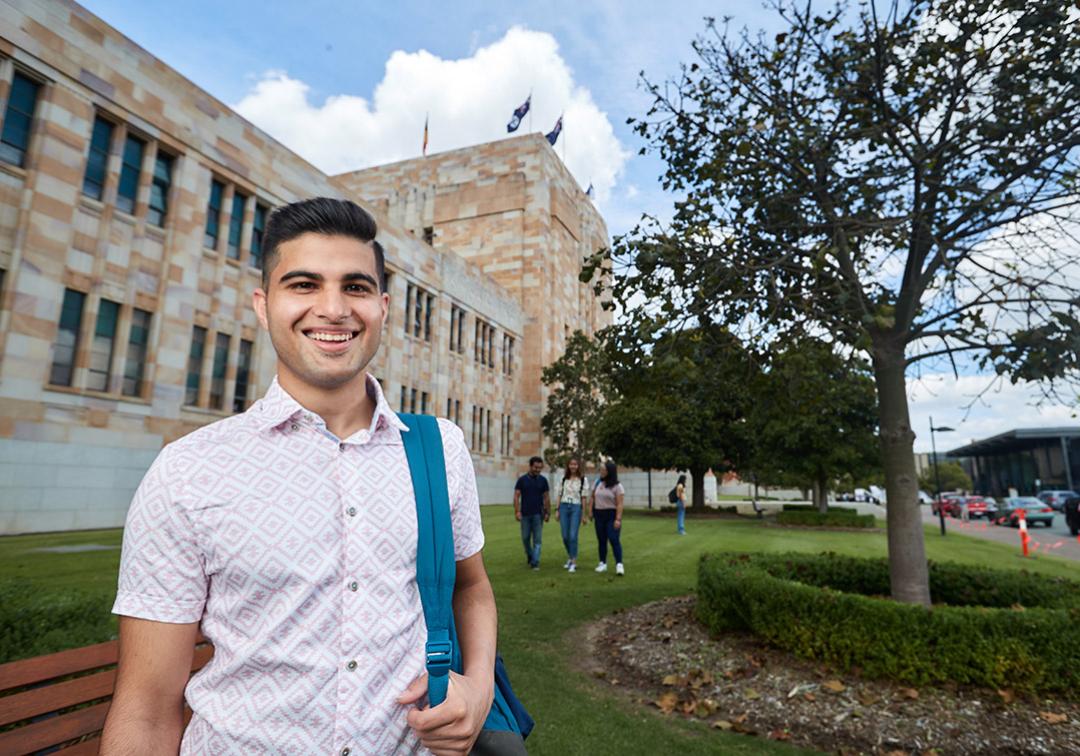
Study tips
Why now is the perfect time to do postgrad study
3-minute read
Stories
See all stories
Careers
Top 5 reasons to choose UQ for postgraduate study
3-minute read

UQ people
Turning her curiosity into a healthcare career
4-minute read
Entry requirements
Entry requirements
To be eligible for entry, you'll need:
- a bachelor's degree (or equivalent) in a relevant discipline (see below); or
- 2 years full-time equivalent, relevant work experience in medical imaging, physics or molecular imaging.
- a bachelor's degree (or equivalent) in a relevant discipline (see below); or
- 2 years full-time equivalent, relevant work experience in medical imaging, physics or molecular imaging.
Relevant disciplines for previous qualifications
Relevant disciplines include mathematics, physics, chemistry, biology, medical imaging, medical radiation, radiography, allied health, biomedical engineering, engineering, and computer science.
Related programs
Depending on your previous qualifications and current goals, you might want to consider
one of these related programs:
English language requirements
IELTS overall 6.5; reading 6; writing 6; speaking 6; listening 6. For other English Language Proficiency Tests and Scores approved for UQ
TOEFL iBT (including Paper Edition) - Overall 87, listening 19, reading 19, writing 21 and speaking 19.
PTE Academic - Overall Score of 64 and 60 in all sub bands.
BE - A minimum overall grade of 4 plus a minimum grade of C in all macro skills.
CES - Overall 176 and 169 in all sub bands.
OET is not accepted.
There are other ways to meet the English language requirements. For some programs, additional conditions apply.
Student visas
International students who are accepted into full-time study in the Graduate Diploma in Magnetic Resonance Technology are eligible to apply for an Australian student visa (subclass 500).
There are a number of requirements you must satisfy before a visa is granted, including the Genuine Student (GS) requirement.
Fees and Scholarships
Indicative annual fee
Approximate yearly cost of tuition (16 units). Your fees will vary according to your selected courses and study load. Fees are reviewed each year and may increase.
$9,540
2026
Approximate yearly cost of full-time tuition (16 units). Your fees will vary according to your study load. Fees are reviewed each year and may increase.
AUD $50,032
2026
Additional costs
- Students who undertake vacation work, fieldwork or work experience will be required to fund their own travel and living expenses.
Government assistance
Financial aid
As an international student, you might be eligible for financial aid – either from your home country, or from the Australian Government.
HECS-HELP
Domestic places in the Graduate Diploma in Magnetic Resonance Technology are Commonwealth supported, as long as you meet all Commonwealth supported place eligibility requirements.
This means the cost of your education is shared between you and the Australian Government. Instead of tuition fees, Commonwealth supported students pay what are called student contribution amounts.
If you have a Commonwealth supported place, you may also be eligible for HECS-HELP. This is an Australian Government loan scheme to assist eligible students with the cost of their student contribution amounts.
Centrelink support
The Australian Government offers a number of income-support payments to eligible Australian university students.
Scholarships
You may be eligible for more than 100 scholarships, including:
How to apply
Applying online
All international applications should be submitted to UQ. If you prefer, you can use an approved UQ agent near you.
The program code for the Graduate Diploma in Magnetic Resonance Technology is 5096.
Applying online
All domestic applications should be submitted to UQ.
The program code for the Graduate Diploma in Magnetic Resonance Technology is 5096.
Important dates
The closing date for this program is:
- To commence study in semester 2 - May 31 of the year of commencement.
- To commence study in semester 1 - November 30 of the previous year.
Visa processing times vary. Apply and accept your offer as early as you can.
To learn more about UQ dates, including semester start dates, view the Academic Calendar.
Important dates
The closing date for this program is:
- To commence study in Semester 1 - January 31 of the year of commencement.
- To commence study in Semester 2 - June 30 of the year of commencement.
To learn more about UQ dates, including semester start dates, view the Academic Calendar.
Aboriginal and Torres Strait Islander applicants
For support with applying – or if you have any questions about university life – get in touch with our Aboriginal and Torres Strait Islander Studies (ATSIS) Unit.
Explore other programs
Express yourself. And your interest.
They say choosing a degree is hard, which is why we've made it easy. Register your interest and we'll send you everything you need to know about applying to UQ.


